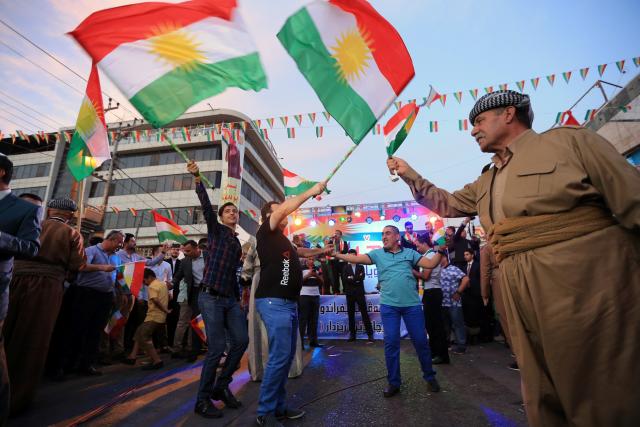Iraq's top Shi'ite cleric Sistani opposes secession of Kurdish region

Iraq's top Shi'ite cleric opposes the secession of the Kurdistan region in northern Iraq, his representative said in a Friday sermon on his behalf, in the religious leader's first comments on the Kurds' decision to back independence in a referendum.
Grand Ayatollah Ali al-Sistani, a reclusive octogenarian, is revered by millions of Shi'ite Muslims in Iraq and abroad.
Sistani believes that "any attempt to make secession an accomplished fact will lead to undesired consequences affecting Kurdish citizens", his representative Ahmed al-Safi said in the sermon in the holy Shi'ite city of Kerbala, south of Baghdad.
He urged the Kurdistan Regional Government (KRG) "to return to the constitutional path in solving disputes" such as self-determination for the Kurdish people, Safi said.
It is the first direct political sermon by Sistani since early 2016, in a clear sign that he attaches importance to the crisis pitting the KRG against Baghdad and Iraq's neighbours.
Sistani stopped making direct political comments in Feb. 2016, in protest at the widespread and deep-rooted corruption within Iraqi government institutions.
Most Iraqi Kurds are Sunni Muslims but Kurdish northern Iraq is also home to some Shi'ite Turkmens and Arabs.
The Shi'ite-led government in Baghdad is set to impose a ban on international flights to and from Iraq's Kurdistan region from 6 p.m. (1500 GMT) on Friday, in retaliation for the vote.
Masoud Barzani's KRG says Monday's referendum, which delivered an overwhelming yes for independence, was meant to pave the way for a peaceful secession from Iraq, through talks with Baghdad and neighbouring states Turkey and Iran.
Barzani said last week one reason for holding the referendum was because he feared Iraq, split between a Shi'ite majority and Sunni minority, was becoming a sectarian-based "theocracy", not a proper democracy as promised after the 2003 U.S.-led invasion that ousted veteran ruler Saddam Hussein.
The Iraqi government has rejected any talks with the KRG and demanded that the Kurdish leadership cancel the result in order to avoid sanctions, international isolation and possibly a military intervention.